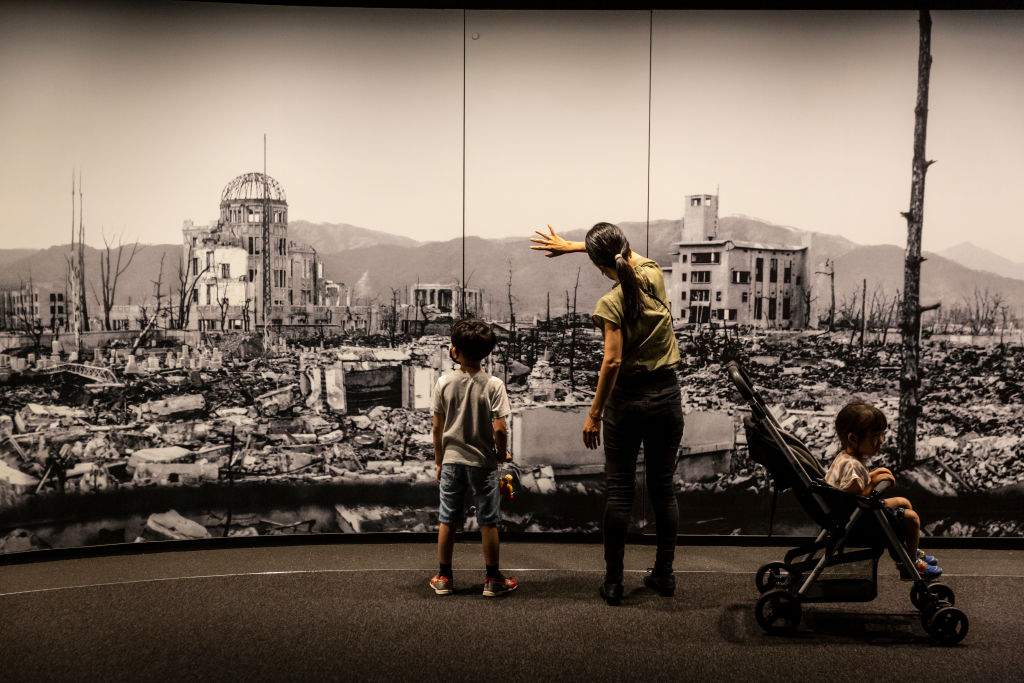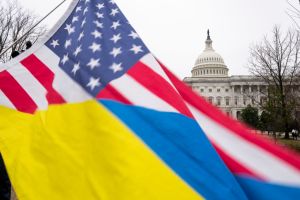If you think the falsehoods spilling out of Ukraine about casualties and atrocities are shocking, meet the greatest lie of modern history. August 6 marks the seventy-seventh anniversary of the nuclear destruction of Hiroshima and death of some 140,000 non-combatants. Yet the only nation in history to employ a weapon of mass destruction on an epic scale, against an undefended civilian population, shrugs off the significance of an act of immorality.
Beyond the destruction lies the myth of the atomic bombings, the post-war creation of a mass memory of things that did not happen. This myth has become the underpinning of American policy ever since, and carries forward the horrors of Hiroshima as generations pass.
The myth, the one kneaded into public consciousness, is that the bombs were dropped out of grudging military necessity, to hasten the end of the war, to avoid a land invasion of Japan, maybe to give the Soviets a good pre-Cold War scare. Nasty work, but such is war. As a result, the attacks need not provoke anything akin to introspection or national reflection. The possibility, however remote, that the bombs were tools of revenge or malice, immoral acts, was defined away. They were merely necessary and, because we won in the end, justified. That is the evolved myth, but it was not the way the atomic bombings were first presented to the American people.
Harry Truman, in his 1945 announcement of the bomb, focused on vengeance, and on the new power to destroy at a button push. “We are now prepared to obliterate more rapidly and completely every productive enterprise the Japanese have above ground in any city,” said Truman. The plan put into play on August 6 — to force the Japanese government to surrender by making it watch mass casualties of innocents — speaks to a scale of cruelty previously unseen. It was fair: they’d started it, after all, and they deserved the pain. Imagine that idea cut loose in Ukraine.
The need to replace that justification with one of grudging military necessity, a tool for saving lives, grew out of John Hersey’s account of the human suffering in Hiroshima, first published in 1946 in the New Yorker. Owing to wartime censorship, Americans knew little of the ground truth of atomic war, and Hersey’s piece was shocking enough to the public that it required a formal response. Americans’ belief that they’re a decent people needed to be reconciled with the indecency of what had been done. With the Cold War getting underway, and with American leadership fully expecting to obliterate a few Russian cities in the near future, some nuclear philosophical groundwork needed to be laid.
And so the idea the bombing of Hiroshima as a “necessity” appeared in a 1947 article, signed by former secretary of war Henry Stimson, though actually drafted by McGeorge Bundy (later an architect of the Vietnam War) and James Conant (a scientist who helped build the original bomb). Dr. Conant described the article’s purpose as countering Hersey’s account at the beginning of the Cold War as “You have to get the past straight before you do much to prepare people for the future.”
The Stimson article was the moment of formal creation of the Hiroshima myth. A historically challengeable argument was recast as unquestionable — drop the bombs or kill off tens of thousands or maybe even millions (the US regularly revised casualty estimates upwards) of American boys in a land invasion of Japan. It became gospel that the Japanese would never have surrendered, though of course surrender was in fact exactly what happened. Nonetheless, such lies were created to buttress a national belief that no moral wrong was committed, and thus there was no need for introspection by the United States.
No later opportunity to bypass reflection was missed. American presidents from Truman to Bush chose not to visit Hiroshima. The fiftieth anniversary of the bombing saw a moderately reflective planned exhibit at the Smithsonian turned into a patriotic orgy that only reinforced the “we had no choice” narrative. When Barack Obama became the first sitting president to visit Hiroshima in 2016, his spokespeople went out of their way to make clear he would be looking only forward with ally Japan, the mushroom cloud safely out of sight.
American foreign policy thus proceeded under a grim calculus that finds some acts of violence are morally justified simply because of who pulls the trigger, with much of the history of the next seventy-seven years a series of immoral acts allegedly servicing, albeit destructively and imperfectly, the moral imperative of saving lives by killing. America’s decisions on war, torture, rendition and indefinite detention could be explained in character as the distasteful but necessary actions of fundamentally good people against fundamentally evil ones. Hiroshima set in motion a sweeping, national generalization that if we do it, it is right.
We are, in fact, able to think we are practically doing the people of Afghanistan, Iraq, Syria, Yemen, Libya and Somalia a favor by killing some of them, as we believe we did for tens of thousands of Japanese who might have been lost in a land invasion of their home islands. There is little discussion because debate is largely unnecessary; the myth of Hiroshima says expediency wipes away concerns over morality. And with that neatly tucked away in our conscience, all that’s left is to ponder where to righteously strike next. Donbas perhaps?
America’s deliberate targeting of civilians, and its post-facto justifications, are clearly not unique, either in World War Two or in the wars before or since. Other nations, including Japan itself, added their own horror to the books, without remorse. But history’s only use of nuclear weapons holds a significant place in infamy, especially on this August 6. America’s lack of introspection over one of the single most destructive days in the history of human warfare continues, with 21st-century consequences.


















